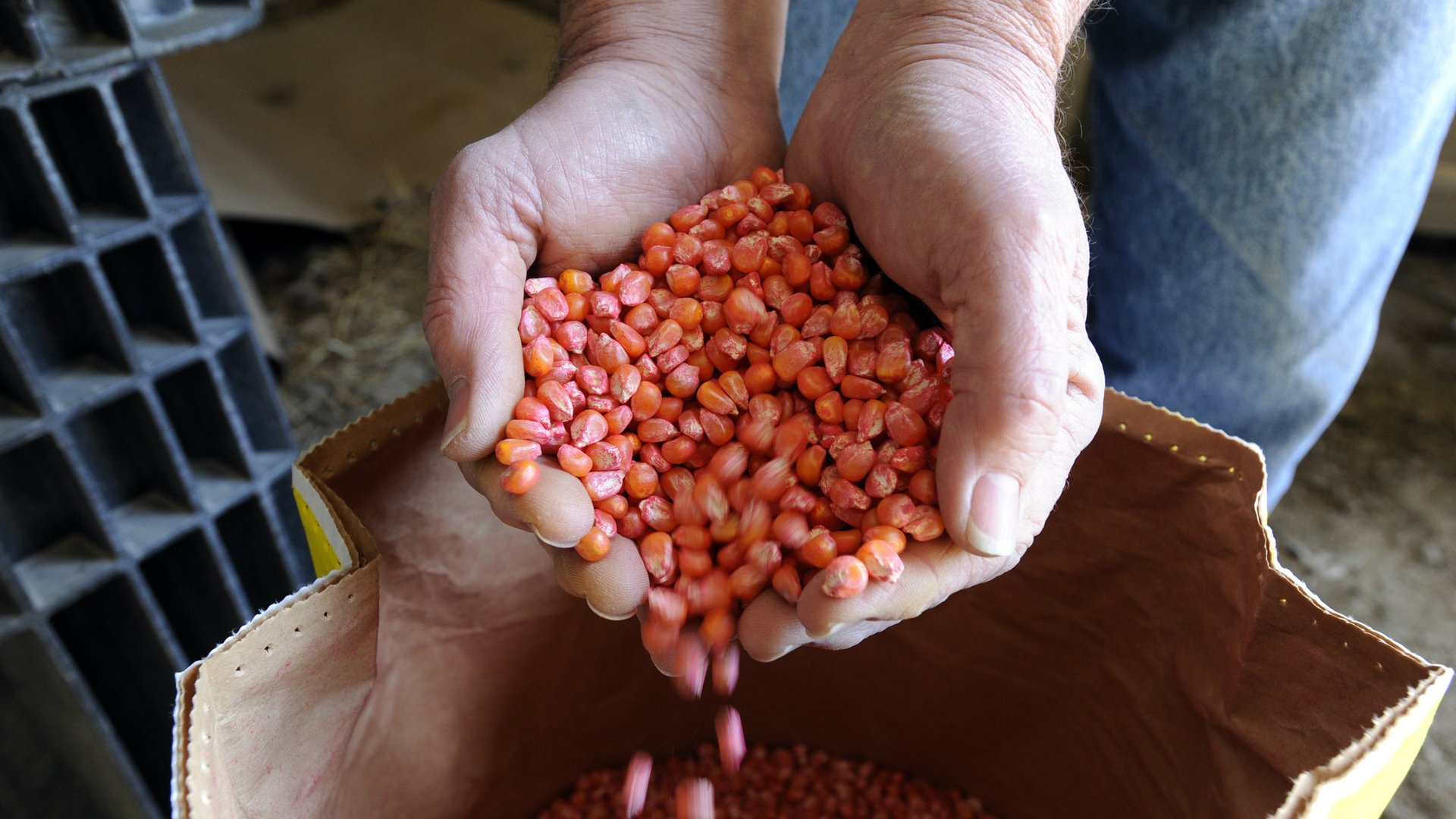China’s population is terrified of GM crops—but they’re getting more anyway
The Chinese are not fans of genetically modified (GM) food.


The Chinese are not fans of genetically modified (GM) food.
In 2010, for instance, when a scientist granted permission to work on GM research was giving a talk in Beijing, a woman in the audience screamed that the scientist was a traitor and a man chucked a ceramic mug at him, according to The New Yorker (paywall). In a country deeply worried about the quality of its food after scandals over baby formula and fake food, an online survey of about 50,000 people by China Daily in 2000 found 84% of respondents felt GM foods were unsafe.
So they won’t be happy to hear that China this week allowed two new types of GM corn to be imported.
The country currently does not allow farmers to plant GM crops, but those crops can be brought in from abroad and used as animal feed. The recent approvals are notable for China, which has a government that’s constantly grappling (link in Chinese) with the threat of food insecurity—after all, the country has one-fifth of the global population but just 7% of the world’s arable land. From that point of view, moving closer toward allowing the cultivation of crops engineered to withstand pests and harsh weather conditions would be a boon.
The approval strikes at the ongoing global tension between science and people’s perception of genetically engineered products. In the US, where farmers are growing more than 40% of the world’s genetically engineered crops, the vast majority of US citizens want GM foods to be labeled as such on food packaging, according to an ABC News poll. And in Europe, countries have strict rules about the cultivation of GM crops.
A 2014 survey by Zhejiang University of 958 people showed that many people in China still don’t understand what GM foods are:
So far, there is no scientific evidence that GM foods are adverse in human health. The World Health Organization has said as much. So did the National Academy of Science, and others (pdf).
The Chinese government’s decision is a small step—but it’s a sign that it is at least willing to take small steps toward GM foods, and good news for major biotech companies, such as Monsanto and Syngenta, whose seed types got the approval this week. Gaining a foothold in the Chinese market would be clear path to profit.